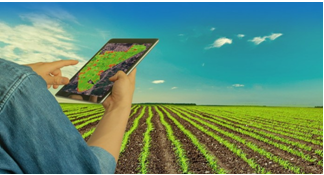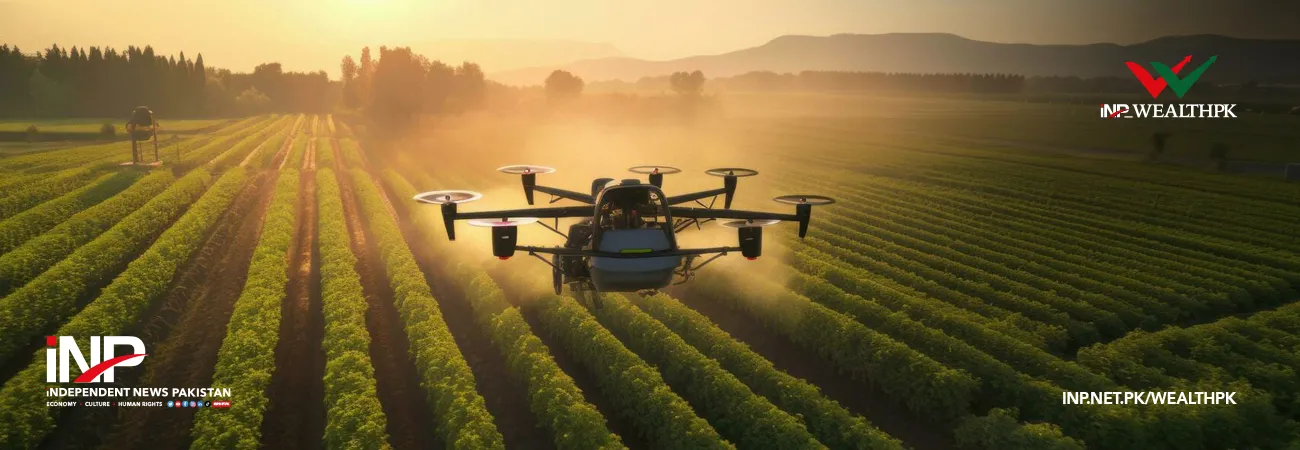INP-WealthPk
Azeem Ahmed Khan
Employing artificial intelligence and precision agriculture could dramatically enhance food security and breathe new life into Pakistan’s struggling agriculture sector, Maria Jawad Khan, a researcher at the Pakistan Institute of Development Economics, said.

“AI-driven farming technologies could revolutionise the sector, which is currently facing stagnant yields and increasing production costs,” she told WealthPK. "By adopting AI tools, farmers can boost efficiency, reduce waste, and substantially improve crop productivity," she stressed. Highlighting the potential impact, she noted that if wheat yields were increased by just 20% through precision agriculture, Pakistan could produce an additional 5.6 million tons of wheat annually. “This would be a major step toward enhancing food security and revitalising the agricultural economy,” she added.
“Technological innovations like remote sensing are changing how farmers monitor their crops,” Maria Khan noted. “Satellite imagery and drones now offer detailed insights into crop health, soil quality, and weather conditions, enabling more informed and timely farming decisions,” she explained. “In Punjab, drones are already being used for crop management, capturing high-resolution images to detect issues like nutrient deficiencies and pest infestations early,” she said. “This has resulted in a 30% reduction in pesticide use and a 15% increase in yields.”
She also pointed to the benefits of precision agriculture tools such as GPS-guided equipment and variable rate technology, which help farmers apply seeds and fertilizers more accurately. “In rice-growing regions, these innovations have cut fertilizer costs by 20% and improved yields by 10% to 30%,” she pointed out.
Maria Khan said automated irrigation systems complement these advancements by optimising water usage -- an essential improvement in a country facing water scarcity. “The integration of AI and data analytics enables predictions of crop yields, early pest detection, and better resource management,” she added. Maria Khan cited platforms like CropIn that provide real-time data on weather, pest risks, and crop conditions, helping farmers increase yields by 15% to 20%.
“Mobile apps like Kisan App and AgriSmart are also playing a vital role, particularly in remote regions such as Balochistan by offering weather updates, pest alerts, and expert farming advice. These are bridging the information gap and empowering farmers to make better decisions,” she noted. Commenting on the current state of agriculture in Pakistan, Maria Khan emphasised that the sector remains dependent on outdated methods, leading to low productivity and high costs. “Despite heavy investments in labour and traditional inputs, yields for key crops remain well below global averages,” she observed.
For example, she said that in 2022, the average wheat yield in Pakistan was considerably lower than the global standard, and rice yields stood at just 2.5 tons per hectare, compared to the global average of 4.6 tons per hectare. “These figures underscore the inefficiency of conventional farming practices,” she added.
Credit: INP-WealthPk













